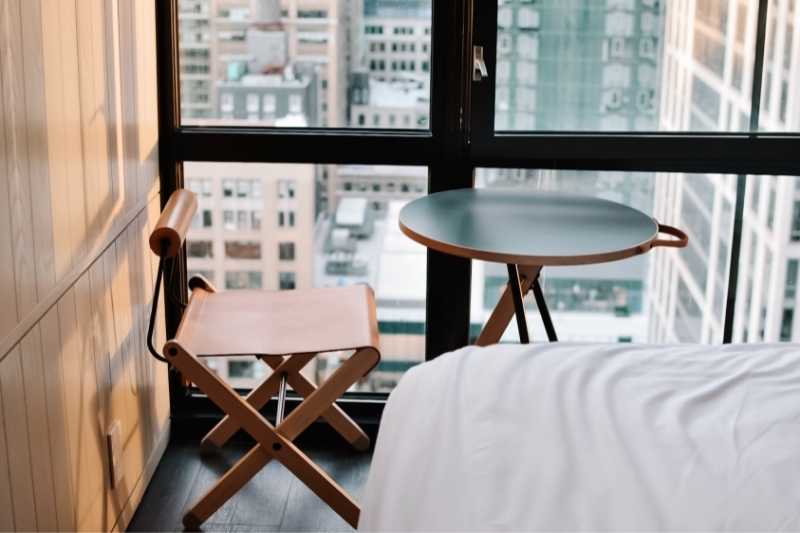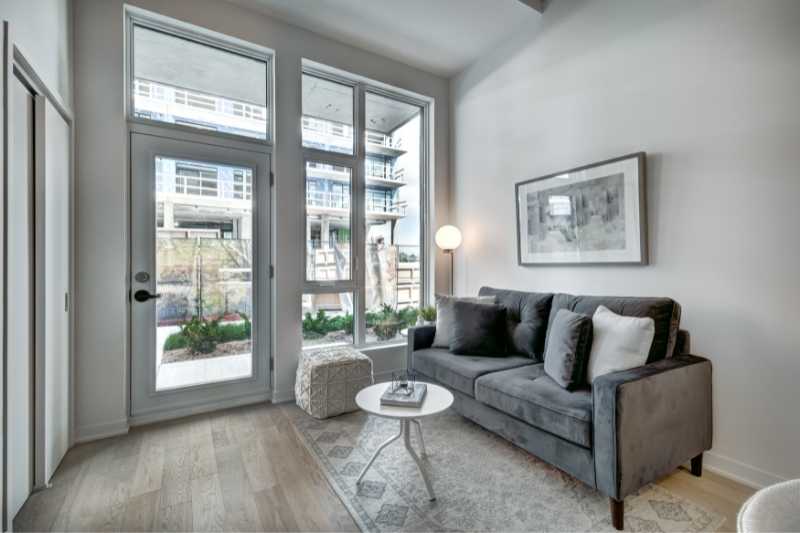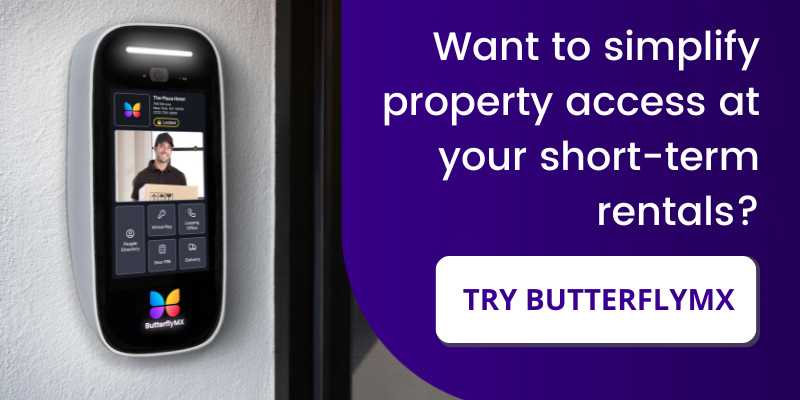Key takeaways
- Apartment home-sharing has been drastically on the rise with apps such as Airbnb.
- Apartments can offer a lot more privacy and space than a hotel. They can also be much more affordable, especially if you have a big family.
- Apartment sharing can allow people to see many landmark destinations and live flexibly. It can be a great source of revenue for property or condo owners.
- However, some cities are fighting back against this trend. Regardless of how prominent this trend becomes, people will always buy and sell properties.

Over the past decade, the emerging “sharing economy” has disrupted almost all industries, from rideshares to coworking spaces. Part of this trend is apartment sharing, a direct exchange where a resident allows somebody to stay in their unit for a short-term for a profit.
Apartment sharing is different from hotels and other lodging services in that it allows for direct exchange between two consumers with a limited need for an intermediary. Platforms such as Airbnb and Homeaway allow people to list their apartments for rent on mobile apps. The home-sharing app will receive a small fee.
In this post, we dive into the apartment sharing trend: how it started, its benefits, and its impact on the real estate industry. Then we discuss the future implications of this trend.
This post covers:
- How did apartment sharing become popular?
- 5 benefits of apartment sharing
- Apartment sharing’s impact on real estate
How did apartment sharing become popular?
Amid the Great Recession of 2008, recent college graduates and young professionals were drawn to big cities like New York and San Francisco to find better job opportunities. However, they also needed affordable places to live — and this was when apartment sharing started to boom. Also known as subleasing, apartment sharing is when the original resident on a lease rents out their unit to another individual while their name is still on the lease.
Instead of renting out their apartment for a fee, some condo owners and apartment renters are now linking with homeowner networks. This means they can earn “credits” from renting out their apartment. These credits can then be used to stay in other people’s homes worldwide.
Popular apartment sharing platforms are:
- Airbnb
- Vrbo
- Craigslist
- Facebook Marketplace

Although many people are renting out a room in the apartment where they live, there is also a growing trend of people using their vacation apartment to rent out or exchange.
According to the National Association of Home Builders (NAHB), there were 7.15 million second homes in 2020. Property owners and investors make significant investments in these vacation apartments. However, they may also want to visit other tourist destinations. As such, apartment exchanges allow individuals and families who own a vacation property to earn credits and travel to other places on a budget.
Find out which apartment amenities residents really want:
5 benefits of apartment sharing
The vacation rental industry is booming. For instance, a survey by Turn Key indicates that 64% of people traveling would rather stay in a vacation rental than a hotel. There are many benefits associated with staying in an apartment rather than a hotel.
Here are the top five benefits of apartment sharing:
- More space and privacy
- Discover new destinations
- Lower costs
- Flexibility
- Revenue generation for renter/owner
1. More space & privacy
If you have a large family, you’d have to pay for multiple hotel rooms. You’d be “split up” rather than all being in the same living area. Additionally, there’s the added cost of eating out, which makes the trip even more expensive.
However, when you stay in an apartment, meals can be prepared at home. Instead of going into individual hotel rooms, you can also spend lots of time together in the living or dining room. You’ll have the privacy and exclusivity you can’t find in a hotel. Having enough living space while traveling is a hot commodity. It’s like being at home away from home — you enjoy being on vacation while feeling “at home.”
So, staying in an apartment offers a more communal experience than a hotel.
2. Discover new destinations
It’s a simple numbers game: There are more apartments than hotels globally.
Private apartments are located everywhere. They don’t require year-round rental demand, which offers a whole load of destinations that travelers can choose from.
People with vacation apartments can use home exchanges to visit places worldwide. Instead of visiting their beach apartment in Florida every year, they can stay in the Italian countryside or visit Southeast Asia.
When you stay in an apartment, you can live like a local and truly experience the culture by riding the local public transportation system and buying from small business vendors. Whether the homeowner is staying at the property or elsewhere, they’ll give you personalized tips on restaurants and places to visit.
3. Lower costs
Hotel accommodation is often the most expensive part of traveling.
For example:
With no kitchen, eating out will also add up to a lot. Apartment sharing allows people to travel for a fraction of the cost. As such, this trend will continue to rise as more and more people travel after a long period of staying in place.

4. Flexible living
Many people are now working from home. If they don’t need to go to a fixed office, they can work from anywhere. Many millennials and Gen Zers are exploring more flexible living options.
For example, they may want to work from their apartment for one week and then work from the beaches of Mexico for the next week.
Young adult homeowners and renters can be here, there, and everywhere. This work-from-home trend is going to drive apartment home-sharing.
5. Revenue generation for renter/owner
It also makes sense for vacation apartment renters and owners to leverage their property. Apartment-sharing platforms make it easy for holiday apartment owners to maintain and rent out their property rather than sell.
Some renters would have their units empty for months on end if they weren’t using apartment-sharing apps. Instead of having a dormant apartment, they can now earn capital for large chunks of the year, leading to sizeable annual revenue.
Some investors use real estate note investing to purchase properties without any of the responsibilities of a landlord. This can be a way of earning passive income without any hassle.
Apartment sharing’s impact on real estate
Real estate is a challenging industry to work in. You may have up-and-coming realtors looking to steal your clients. Additionally, you’re always at the mercy of significant movements in the local and global economy.
However, people will always need a place to live. Home- and apartment-sharing services can never replace the need for buying, selling, and renting properties.
So, there’s no need to fret: Real estate brokers and property managers just need to focus on delivering quality services to prospects and residents alike. That being said, you must also stay in the loop about how this apartment-sharing trend affects the overall real estate market.

Apartment sharing is impacting the real estate industry by
Challenging local laws and regulations
The apartment sharing trend has massive impacts on cities worldwide with heavy tourism traffic. With the influx of global travelers, these cities are grappling with how to regulate short-term rentals.
For example, New York is considering banning apartment-sharing apps amid complaints from long-term residents living in apartment complexes and due to safety and security concerns.
Short-term rentals are also starting to become more lucrative than long-term leases. This could potentially have an impact on the housing market. Any bans would hit apps like Airbnb and those looking to make extra money.
Reimagining apartment living
Sharing an apartment long-term while you still live on the property is also rising. This is due to increasing rental prices and rising costs of living. Long-term home-sharing can also be a way to combat loneliness and social isolation, problems that were very real for many people during the COVID-19 pandemic.
The most important aspect of this type of home-sharing is establishing clear boundaries. It’s important to have open conversations about guests staying, tidiness, rules about TV and music, and how to manage shared spaces, such as the kitchen.
As a result, you should expect residents to redefine apartment living and lease agreements. Consider fostering a residential environment that centers around flexible leasing and living.
Pro tip: Add a smart intercom to your apartment building to facilitate seamless property access for both long- and short-term residents.

Author’s Bio
Lisa Goulart is a financial expert and writer at Financial Freedom Countdown. She’s passionate about helping people think differently about their financial challenges and how to live their best lives! Lisa writes about a myriad of topics related to increasing income while thriving in a high cost of living location, investment options (outside of stocks, bonds, and real estate), life optimization strategies, protection against disaster, travel, and anything related to intelligent financial planning.






